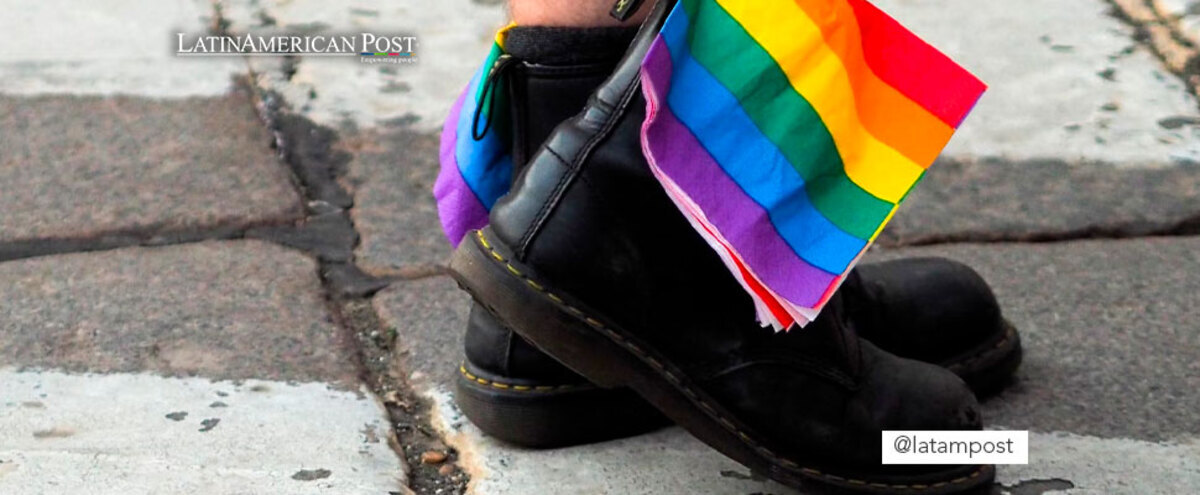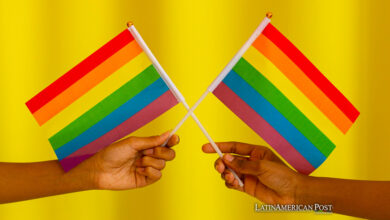Terrorist Attacks on the LGBTI+ Community, a Chronic Problem
On June 25, the world woke up in mourning for a terrorist attack in Oslo in which 2 people died and 20 were injured. The attacks on the LGBTIQ+ community show that this is a chronic problem, on which we must take action.

Photo: Unsplash
LatinAmerican Post | July Vanesa López Romero
Listen to this article
Leer en español: Ataques terroristas hacia la comunidad LGBTI+, un problema crónico
The celebration of the Pride March in Oslo, Norway, was canceled last Saturday due to a terrorist attack that occurred at dawn, in which 2 people died and 21 were injured. According to the authorities, the shooting would have been perpetrated by a citizen with a Norwegian passport and of Iranian origin. Likewise, the reports assure that it was an Islamist terrorist attack.
This year marks the 53rd anniversary of the first Pride parade. That this fact happened precisely during the celebrations of the month that commemorates this event around the world, not only generates anger within the community, but also a concern for the comprehensive safety of those who belong to it. Likewise, questions arise about how much has come and gone in recent years, especially considering that LGBT rights are used by brands, companies, and governments to sell a positive and diverse image that falls short when it comes to guaranteeing those rights in practice. And it is that, although we have seen great progress on this issue, violence is systematized and discrimination is constant.
Just look at the figures released by LGBT organizations, such as those of the International Lesbian, Gay, Bisexual, Trans and Intersex Association (ILGA). According to the NGO, 1 in 5 people are forced to undergo conversion therapy and there are still many countries that do not have clear and strict laws prohibiting this practice. Likewise, of the 194 countries in the world, only 11 have constitutional protection against discrimination based on sexual orientation; in 30, there are up to 8 years in prison for consensual sexual acts between adults of the same gender; in 27, there may be a life sentence and in 5, the death penalty.
Also read:Gallery: Pride Day: Reality, Victories and Challenges of The LGTB + In Latin America
This reflects that governments and states are still far from guaranteeing the security, equality, dignity, and rights of LGBT people and that if this is the response by government entities, which are supposed to ensure the well-being of all citizens without any exception, the violence exerted by other citizen groups or individuals is veiled and justified from the same institutions.
What happened in Oslo is not an isolated event. Let us remember that in June 2016, in Orlando, Florida, the second-worst shooting perpetrated by a single person in the history of the United States took place. It happened at Bar Pulse, with an LGBT theme. In the event, 49 people were killed and another 53 were seriously injured. The FBI classified the event as a terrorist attack. With this, we see that there is a precedent and that the LGBT community is being targeted for this type of attack. They are direct attacks on the community, they are attacks that put a specific group of people at risk.
In Turkey, precisely during the Pride March, the police became violent towards those who were at the event and there were several complaints about police violence in a space intended for said celebration. In Colombia, last weekend, a trans woman was attacked and beaten with chains and straps by three men, the event was captured in a video released by the Trans Community Network, an organization that fights for the rights of transgender people. These are just some of the cases that have recently occurred that threaten LGBT people.
In this month, it is necessary to understand that violence against the community is not a matter of lack of tolerance, since tolerance is not enough, but rather it is a chronic problem that, in turn, is made invisible by a capitalist discourse that has made us think that rights for LGBT people exist, are guaranteed and are practiced. There is still a long way to go in this regard and those who must first show interest in changing the rules of the game are the institutions, the states, and the leaders.



